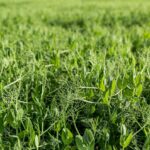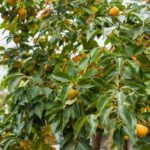Pests pose a significant threat to agricultural productivity, causing crop damage and economic losses for farmers. While chemical pesticides have traditionally been used to control pests, they can have harmful effects on human health, beneficial insects, and the environment. In recent years, there has been a growing interest in natural and sustainable pest management practices. Here are ten ways to manage pests naturally on South African farms:
1. Crop Rotation
Crop rotation involves alternating the types of crops grown in a particular field over time. This practice disrupts the life cycle of pests by reducing their access to host plants. Different crops have different nutrient needs, which can help improve soil health and reduce pest pressure.
2. Companion Planting
Companion planting involves planting different crops together to promote mutual benefits. Some plants naturally repel pests or attract beneficial insects that prey on pests. For example, planting marigolds alongside vegetables can help deter nematodes, while attracting pollinators like bees and butterflies.
3. Natural Predators
Encouraging natural predators such as ladybugs, lacewings, and predatory mites can help control pest populations. These beneficial insects feed on pests like aphids, mites, and caterpillars, reducing the need for chemical pesticides. Providing habitat and food sources for natural predators can help maintain a healthy balance in the ecosystem.
4. Biological Control
Biological control involves using living organisms to control pest populations. This can include introducing natural enemies such as parasitoids, predators, or pathogens that target specific pests. Biological control agents are often more targeted and sustainable than chemical pesticides, with fewer negative effects on non-target organisms.
5. Trap Crops
Trap crops are plants strategically planted to attract pests away from main crops. By offering a preferred food source, trap crops can help lure pests away and reduce damage to valuable crops. For example, planting mustard greens to attract flea beetles away from brassica crops can help protect the main crop from damage.
6. Crop Diversity
Diverse farming systems that incorporate a variety of crops and vegetation types can help suppress pest populations. Monoculture farming, where large areas are planted with a single crop, can create ideal conditions for pest outbreaks. By diversifying crops and landscapes, farmers can disrupt pest cycles and promote natural pest control.
7. Cultural Practices
Simple cultural practices such as proper irrigation, weed management, and sanitation can help reduce pest pressure. Removing crop residues, weeds, and other debris can eliminate hiding places and breeding sites for pests. Good soil management practices can also improve plant health and resilience to pests.
8. Botanical Extracts
Botanical extracts derived from plants such as neem, pyrethrum, and garlic have insecticidal properties and can be used to control pests. These natural products are less harmful to beneficial insects and the environment compared to synthetic pesticides. However, it’s essential to use them responsibly and follow recommended application rates.
9. Microbial Insecticides
Microbial insecticides contain naturally occurring microorganisms such as bacteria, fungi, or viruses that target specific pests. These products can be effective against a wide range of pests while minimizing harm to non-target organisms. Microbial insecticides are often used as part of an integrated pest management approach.
10. Physical Barriers
Physical barriers such as row covers, netting, and traps can help protect crops from pests. Row covers made of lightweight fabric can prevent insect pests from accessing plants while allowing sunlight, air, and water to reach the crops. Netting can also be used to exclude birds and other wildlife that may damage crops.
Managing pests naturally on South African farms requires a holistic approach that integrates various strategies to promote ecosystem health and resilience. By adopting sustainable pest management practices such as crop rotation, companion planting, biological control, and cultural practices, farmers can reduce reliance on chemical pesticides while maintaining healthy and productive agricultural systems. Embracing natural pest management not only protects human health and the environment but also ensures the long-term sustainability of farming practices in South Africa.







